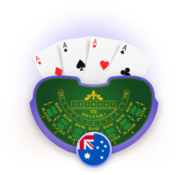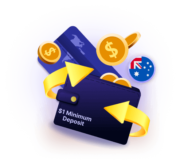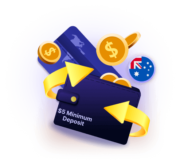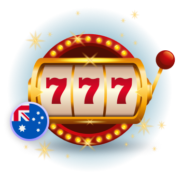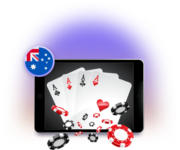Gambling addiction can take a serious toll on a person’s life, impacting mental health, relationships, and finances. In Australia, individuals, families, and entire communities feel the effect. Seeking help early can make all the difference, and there are many resources available to guide people towards recovery.
This blog explores where and how you can get gambling addiction help and support in Australia, from free helplines to professional counselling and self-exclusion tools.
Understanding Gambling Addiction
- What is Gambling Addiction? Gambling addiction, also known as compulsive gambling, is a behavioural disorder where a person feels unable to stop betting despite harmful consequences. Common symptoms include frequent gambling, chasing losses, hiding the habit from loved ones, and prioritising gambling over work, family, or other responsibilities. Over time, it can lead to severe financial strain, emotional distress, and feelings of helplessness.
- The Impact of Gambling Addiction. The effects of gambling addiction extend beyond the individual. Financial problems can spiral into debt, affecting housing, employment, and personal security. Emotionally, it can lead to anxiety, depression, and a breakdown of trust in relationships. Socially, people may withdraw from friends and family, creating further isolation. Recognising these impacts is often the first step towards seeking help.
Signs You Need Help
- Recognising the Warning Signs. Warning signs include gambling more than you can afford to lose, increasing the amounts you bet to feel excitement, lying to conceal gambling habits, and neglecting daily responsibilities. You might feel restless or irritable when trying to cut back. Many also experience increased stress and anxiety tied directly to gambling activity.
- When to Seek Help. Taking action immediately is essential if you recognise these signs in yourself or someone you care about. Gambling addiction is treatable, and the sooner support is sought, the better the chances of recovery. Reaching out for help is a strong and positive step, not a weakness.
Available Help and Support Options
If you or someone you know is struggling, a wide range of services in Australia can provide gambling addiction help and support. These include helplines, online communities, counselling, and self-exclusion programs.
- Gambling Helplines in Australia. The National Gambling Helpline (1800 858 858) offers free, confidential support 24/7 to anyone affected by gambling. Trained counsellors can listen without judgment, provide immediate emotional relief, and connect callers to local resources. State-based helplines may also be available, offering location-specific referrals and support. Phone assistance is ideal for moments of crisis, as you can talk to a real person who understands the challenges of gambling addiction. Many helplines also offer text or online chat services for those who prefer written communication. Whether you’re seeking help for yourself or a loved one, calling a helpline can be the first important step toward recovery.
- Online Support Groups and Forums. For people who prefer privacy and flexibility, online platforms like Gambling Help Online (gamblinghelponline.org.au) offer forums, live chat, and self-help resources. These communities allow you to connect with others experiencing similar challenges, share personal stories, and learn practical coping strategies. The anonymity of online support can make it easier to open up about difficult topics without fear of stigma. Many platforms operate 24/7, allowing you to seek advice at any time of day. They also provide articles, quizzes, and recovery tools that you can work through at your own pace. This makes online groups an accessible option for ongoing, discreet support.
- Counselling and Therapy. Professional counselling is one of the most effective ways to treat gambling addiction. Many services in Australia offer free or low-cost sessions, both in person and online, often funded by government programs. Cognitive-behavioural therapy (CBT) is a common approach, helping clients identify and change unhealthy thoughts and behaviours linked to gambling. Therapists can work with you to develop coping strategies, address underlying emotional issues, and set realistic goals for recovery. Sessions can be individual, with a partner, or in a group setting. With the right therapist, counselling provides a safe space to explore challenges, build resilience, and reduce the risk of relapse.
- Self-Exclusion Tools. Self-exclusion programs give people control by restricting access to gambling services. BetStop is the national self-exclusion register for online betting in Australia, allowing individuals to block themselves from licensed gambling websites and apps. Registration is free, confidential, and can last from three months to a lifetime. State-based exclusion programs are available for physical venues such as casinos or clubs. International services like GamStop can help if you access overseas gambling sites. These tools are not a cure for addiction, but they create a practical barrier while you seek further support. Combining self-exclusion with counselling greatly improves the chances of long-term recovery.
Support Options for Families and Loved Ones
- How to Support Someone Struggling with Gambling Addiction. If someone you care about is battling gambling addiction, your support can make a real difference. Practice active listening, encourage them to seek professional help, and avoid judgmental language. Setting healthy boundaries and protecting your own well-being is equally important.
- Resources for Family Members. Family and friends can access services like Gambling Help for Families, which provides counselling, group support, and online resources. These programs help loved ones cope with the emotional and financial impact of gambling addiction while equipping them with tools to offer effective support.
The Importance of Recovery and Staying on Track
- Setting Goals for Recovery. Recovery works best when there’s a clear plan. Setting small, achievable goals, such as limiting access to gambling opportunities or attending weekly support sessions, builds momentum. Over time, these short-term wins can lead to long-term stability.
- Long-Term Support and Maintenance. Gambling addiction recovery isn’t just about stopping; it’s about staying stopped. Long-term strategies include ongoing therapy, regular check-ins with support groups, and continued use of self-exclusion tools. Many people benefit from having an accountability partner to help maintain motivation.
- Success Stories. Across Australia, there are countless stories of people who have overcome gambling addiction. Some have shared publicly how helpline support and counselling helped them rebuild their lives, repair relationships, and regain financial control. These stories are a reminder that with the right help, recovery is not only possible but achievable.
Conclusion
Gambling addiction can feel overwhelming, but you are not alone. In Australia, there are many free and confidential resources offering Gambling Addiction Help and Support. Taking the first step can be life-changing, whether calling a helpline, joining an online group, or speaking with a counsellor. If you or someone you know is struggling, reach out today and start the journey toward recovery.
